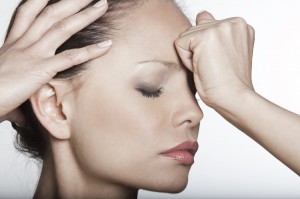
The typical postoperative instructions for migraine surgery are as follows:
1. Most cranial nerve decompression procedures have only modest pain after surgery. Patients usually only feel the need to use Tylenol or Ibuprofen for just a few days after the procedure, some patients may need stronger pain medication for a few days. In rare cases the surgery may actually trigger a migraine and you may use your regular migraine medications as needed.
2. You may sleep in any position that feels comfortable. Most find the best comfort to sleep sitting up for the first few days after surgery.
3. There may be a circumferential wrap placed around the head right after surgery. This will be worn overnight and you may remove it the next morning. It does not need to be replaced.
4. You may shower and wash your hair the next day. There is no harm in getting the scalp sutures wet.
5. The sutures used in the scalp incisions will dissolve on their own. There is NO need for suture removal.
6. You may treat any eye bruising with ice or neck stiffness with a warm pad in the first few days after surgery.
7. There will usually be some temporary scalp numbness or periodic itching in the first few weeks after surgery. This is due to the scalp manipulation and will resolve on its own with healing.
8. There are no limitations to any physical activities after migraine surgery. You may feel free to run, workout and do any non-contact sporting activity as soon as you feel comfortable. Wearing of hats or head bands is based on scalp tenderness.
9.There are no restrictions on what you can eat or drink after surgery.
10. If any incisional or scalp redness, increased tenderness or swelling, or drainage develops after the first week of surgery, call Dr. Eppley and have your pharmacy number ready.


